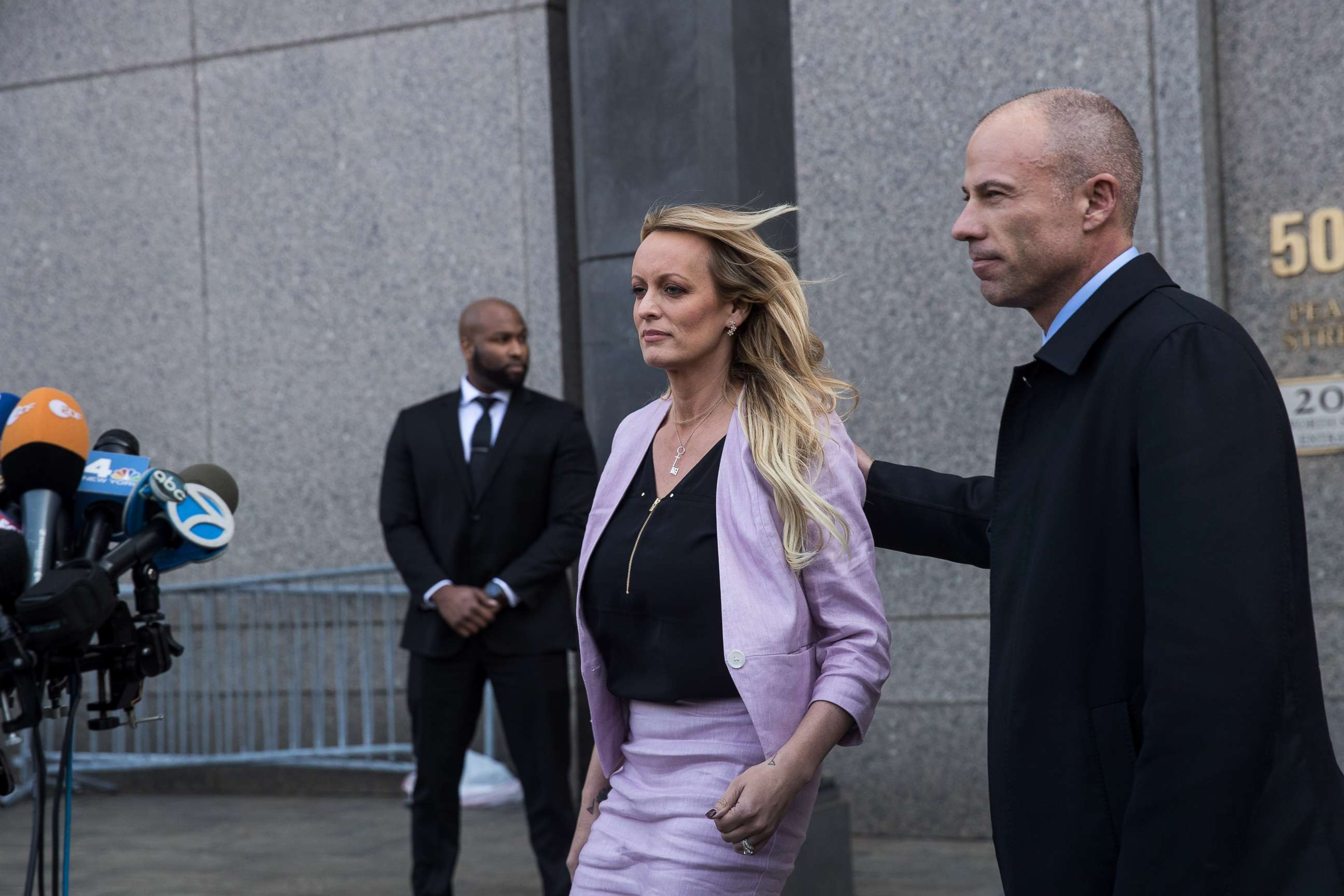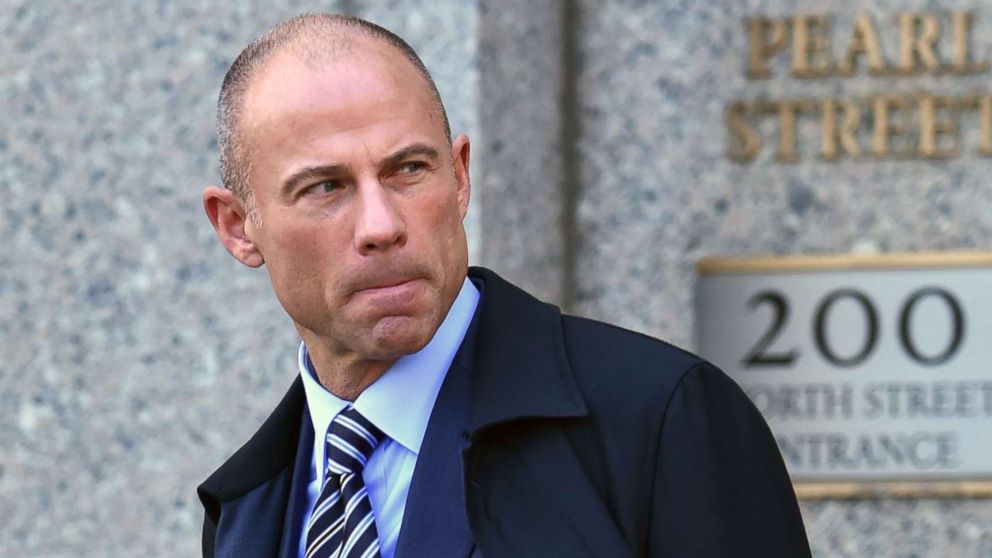Michael Avenatti casts himself as anti-Trump avenger
Michael Avenatti, the telegenic attorney for adult-film star Stormy Daniels, has demonstrated an uncanny knack for commanding national media attention, first making headlines in early March when he filed a lawsuit against President Trump and his former personal attorney, Michael Cohen.
The lawsuit, which seeks to invalidate a once-secret $130,000 non-disclosure deal Daniels signed just days before the presidential election, attracted immediate, widespread attention.
In the two months since, Avenatti has become a near-daily fixture of cable news programs, advocating for Daniels - whose legal name is Stephanie Clifford - but also making a series of public disclosures about much broader issues in the ongoing investigations of Cohen in New York and by the Office of the Special Counsel, Robert Mueller.
“I think Mr. Avenatti has gotten past the point at which he is only talking about issues that are related to his client,” said Renato Mariotti, a former federal prosecutor in Illinois. “Now he's become kind of a broader spokesperson on issues related to Michael Cohen or Donald Trump. And that's an unusual situation for a lawyer to be in.”
Last week Avenatti disclosed a summary of Cohen’s confidential banking records, He followed that up with a cryptic tweet on Sunday showing photos of Cohen stepping off elevators in the Trump Tower lobby during the presidential transition, escorting a high-ranking functionary of the government of Qatar.

“Unless I’m missing something, Cohen dealing with the Qataris isn't relevant to whether or not he paid hush money to Stormy Daniels,” said Paul Rosenzweig , a senior fellow at the conservative-leaning R Street Institute and a former Whitewater investigator. “It seems more like [Avenatti] is running a private effort to kind of spread on the public record some of what he thinks might be in the Mueller investigation.”
Avenatti’s disclosure of the banking records, which detailed large corporate payments to Cohen for consulting deals that began shortly after Trump entered the White House, did lead to revelations that Mueller had been probing Cohen’s business dealings for several months. It also prompted Cohen’s attorneys to point out some errors in the records. And, they asked a federal judge to require Avenatti to explain how he acquired information that the lawyers argued he had “no lawful basis to possess.”
The inspector general of the Treasury Department is now investigating possible leaks of Suspicious Activity Reports, or SARs, from Cohen’s financial institutions.
“Suspicious activity reports are confidential. They're not allowed to be leaked,” said Michael Volkov, a white-collar defense lawyer who spent seventeen years as a federal prosecutor in Washington, D.C.
Volkov notes that the disclosure of the records came after Avenatti had spent weeks publicly cajoling the Treasury Department to release the reports, employing the Twitter hashtag, “#ReleaseTheSARs.”
“He's a PR show and he's trying to serve as a focal point for people to deliver information to,” Volkov said. “He's marketing, ‘Please bring the information on this stuff.’ And he's good at it. Look, give the guy credit, he's good at it. He doesn't have an army of lawyers behind him.”
Kendall Coffey, a former U.S. Attorney in Miami, puts it more bluntly: "I think he's the go-to guy for anyone that wants to keep their fingerprints off of information about Michael Cohen."
"I don't recall this effective a media campaign with finite factual elements," Coffey said. "Most things connected to President Trump get a multiplier with respect to the media, but we're still talking about a relatively discrete transaction for a hundred-thirty-thousand dollars with a non-disclosure agreement, which is certainly common enough. And yet from those finite factual elements, we've had a downpour that continues for weeks, for months, and the downpour keeps falling."
Avenatti has said he obtained his information legally, but he's declined to reveal the sources. He has defended his release of the records as protected by the First Amendment. And he’s promised that there’s more to come, while boldly predicting that Trump won't complete his term in the White House.
"I’m not going to disclose how we're getting the documents," Avenatti told ABC News recently. "We’ve only scratched the surface, though. We've got a lot of evidence and a lot of information that are coming to light in the coming days weeks and months."
Last month, a federal judge in California put Daniels’ lawsuit against Trump and Cohen on hold. Cohen sought the delay of the civil case to protect his rights during the criminal investigation ongoing in New York.
Cohen has not been charged with any crimes and -- through his attorneys -- he has denied any wrongdoing.
Yet in the absence of courtroom developments, Avenatti has still managed to create opportunities to keep his client's case in the news, while repeatedly questioning the integrity and truthfulness of the President and Cohen, his longtime fixer.
"Avenatti's client's interests are to show in court and to the public that Cohen and Trump cannot be trusted and should not be believed when they call her a liar," said Mimi Rocah, a long-time federal prosecutor in Manhattan, now a Criminal Justice Fellow at Pace Law School. "So, to that extent, I think he is representing her interests, albeit in a very non-traditional way."
Still, Rocah and other legal observers see risks in Avenatti's ever-expanding offensive against Cohen and Trump.
"He has made himself, in essence, a public figure who is asking the public to trust him by being the original source of some of the information that he has put out there," Rocah said. "The danger of this, in my view, is that even Avenatti has only bits and pieces of the whole story at his disposal right now. Prosecutors and investigators who have subpoena power and other powerful legal methods of investigation at their disposal are more likely to get all the facts and make sense of them and get at the truth whatever that is."




